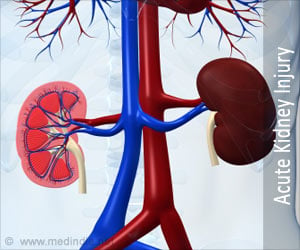Highlights
- Premature deaths attributable to non-communicable diseases are high, with one in three occurring before the age of 60.
- Complications during pregnancy increased the risk of coronary artery heart disease in their offspring by three times.
- Optimal health and nutrition of a mum-to-be throughout her pregnancy is crucial to help stave off or curb the risk of early heart disease in her children.
After-effects of Complications During Pregnancy
To find out if complications of pregnancy might be associated with the risk of early coronary heart disease, the researchers compared 153 patients with acute coronary syndrome, which includes heart attack and angina, with the same number of healthy people matched for age and sex.
The heart patients had been diagnosed before the age of 55 (average age 47), and admitted to one cardiac centre in eastern Indonesia.
Detailed information was collected from both groups on background social and economic factors, current lifestyle, cardiovascular risk factors, and parents' history of heart disease, and this was combined with the results of a physical examination and relevant lab tests.
Patients with premature heart disease were more likely to have relevant risk factors than their healthy counterparts. These included high blood pressure and/or diabetes, eating an unhealthy diet, and smoking.
When all the data were analysed, those whose mothers had experienced a complication of pregnancy were almost three times as likely to develop early coronary artery heart disease as those whose mothers had had a problem-free pregnancy.
The findings held true, irrespective of potentially influential risk factors, such as lifestyle and unfavourable lab test results. This is an observational study so no firm conclusions can be drawn about cause and effect.
Pregnancy-induced Hypertension
PIH or Toxemia of pregnancy” as it was known before is sudden rise of blood pressure during the last few months of pregnancy in a previously non-hypertensive mother along with swelling of the mother’s feet and legs or even entire body.
There is also increased protein being sent out in the mother’s urine. This condition can be controlled by means of medications for the blood pressure and necessitates close monitoring of the baby as well as the mother.
There may be restricted growth of the baby along with an increased tendency in the mother to bleed, to develop other complications like fits, kidney failure and so on.
Bottom line
Nevertheless, the researchers suggest that maternal ill health during pregnancy might compromise fetal health by disrupting normal physiological processes, potentially leaving the developing baby vulnerable to subsequent heart disease.
Optimal health and nutrition of a mum-to-be throughout her pregnancy is crucial to help stave off or curb the risk of early heart disease in her children. This includes prompt and appropriate treatment of any illness and preventive healthcare, such as vaccination, they say.
Source-Medindia














